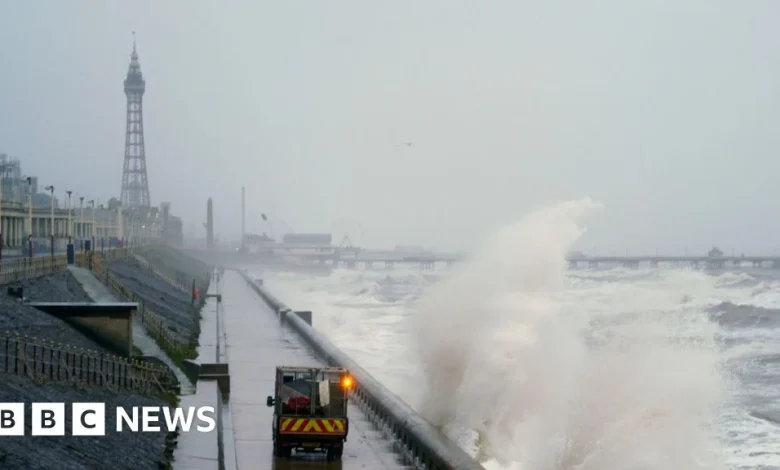Heavy rain may cause disruption and floods in north-west England

Heavy rain could cause disruption – including flooding – across north-west England on Monday and Tuesday.
Met Office forecasters have issued a yellow warning, saying there is a risk some homes and businesses could be flooded and that public transport and power supplies could also be affected.
They said strong winds and gales were forecast, particularly on the coast and higher ground.
“An area of heavy rain will move steadily east across the area during Monday,” a Met Office representative said.
“While the rain may ease for a time during the afternoon across Cumbria, another pulse of heavy rain is possible here during the evening and overnight, with all rain eventually clearing early Tuesday morning,” they said.
The Met Office also advised people whose property was at risk of flooding to prepare an emergency flood kit.
Bus and train services could also be affected, with journey times taking longer.
“Give yourself the best chance of avoiding delays by checking road conditions if driving, or bus and train timetables – amending your travel plans if necessary,” the Met Office added.





